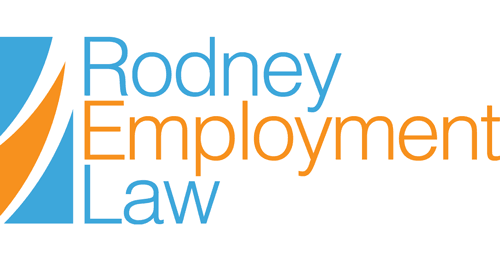By: Jordan Rodney & Nicole Mast Kusch in Dialogue Magazine
Building a Safe and Respectful Workplace
At its peak, the #MeToo movement was all over the internet, TV and radio. It seemed that everywhere you turned, new and serious allegations surrounding your favourite stars and business leaders were coming to the forefront. Although the movement seemed primarily focused on high-profile Hollywood celebrities, there are many elements that can be adopted as best practices in your workplace today.
It would be difficult to argue that the #MeToo movement did not shed light on the pervasive problem of workplace harassment, ultimately paving the way for meaningful discourse on the topic. While it may be a stretch for employers to make the connection between the Hollywood elite and the regular office workplace, the types of incidents that occur impact regular people like you and me. According to a recent survey, one in five Canadian women and one in eight Canadian men indicated they have been harassed at work.
These figures may seem shocking to some at first glance, but upon reflection, they are not so unbelievable. When the Jian Ghomeshi and Harvey Weinstein cases commenced in Canada and the U.S., respectively, the allegations were not surprising to most.
So, if workplaces in Canada have always had these types of incidents involving harassment, bullying and mistreatment, why are we only hearing about them now?
One reason could be the complexity of our modern-day workforce. Not only do we have a more diverse workplace but employees are also more educated and aware of their legal rights, and are consequently less tolerant of unacceptable conduct and not afraid to take action when they feel they are being mistreated. All it takes is a quick Google search for an employee who feels harassed at work to realize this conduct is illegal and there are various avenues of recourse available. In Ontario, for example, there is no cost to file a human rights complaint and, in some cases, complainants may have access to the Human Rights Legal Support Centre for guidance and help.
5 Best Practices For A Respectful Workplace
- Update and communicate your policies on respect in the workplace on a regular basis
- Provide regular and ongoing training to all managers and employees on your policies and procedures
- Ensure that “Respect” is a core value in your workplace
- Conduct investigations into any and all complaints about harassment
- Ensure employees feel empowered to raise issues and speak up if they feel there is a problem in the workplace
In light of this evolving employment landscape, we have seen a variety of legislative changes to ensure harassment-free workplaces across most Canadian jurisdictions. For instance, the definition of “psychological harassment” under Quebec’s Act Respecting Labour Standards has been expanded to include sexual harassment and employers are now required to adopt psychological harassment prevention policies in that province, which will likely lead to similar reforms across other Canadian jurisdictions.
In addition, as it stands in Ontario right now, any and all incidents of workplace harassment must be investigated in an expeditious and confidential manner, and the findings of the investigation must be provided to both the alleged harasser and the complainant. Furthermore, larger and more global employers across a variety of industries, such as Google, have been vocal about the zero-tolerance approach their organizations have adopted to combat cases of harassment, bullying, violence and discrimination in the workplace.
A Proactive Approach
Now for the important part: what are the key steps your organization can start implementing to ensure a respectful and harassment-free environment?
First, prepare a comprehensive “Respect in the Workplace” policy that outlines a step-by-step process to file complaints, as well as how your organization will investigate and respond to these situations. This is a best practice and required by law in many jurisdictions.
In addition, your employees—especially at the management and supervisory levels—should be regularly trained on your organization’s policies and relevant legislation. Ignorance of the law is never an excuse. If it is found that you, as an employer, did not exercise due diligence by investigating a complaint, your organization risks serious penalties and certain staff members may even be held individually liable.
It is imperative investigations are conducted in a manner that is unbiased, ideally by an independent and objective expert. For example, having the Accounts Payable Clerk investigate allegations of sexual misconduct by your Chief Financial Officer would not be deemed a properly conducted investigation, as they have neither impartiality nor expertise in workplace investigations.
In addition, when an investigation is required, it is critical to take measures to mitigate the impact on all employees. These situations generally affect the organization as a whole and can take an emotional toll when they occur.
Finally, and of the utmost importance, make sure that you, as an organization, lead by example and practice what you preach. All the policies in the world will be ineffective if management does not follow them or if employees do not feel that they are able to come forward with complaints. Ensuring an employee does not feel that they will suffer reprisal after bringing forward allegations is tricky but not impossible. The importance of articulating your organization’s values of behaviours such as respect, dignity and diversity, and then living up to them cannot be overstated.
In essence, part of what #MeToo has brought to the forefront is the lack of these values within many organizations. Respect in the workplace is something that we all deserve, regardless of the size of organization and industry in which we operate. As such, creating an ideal workplace environment ultimately boils down to consistently ensuring and reinforcing that each individual within your organization lives and breathes the organization’s values.
